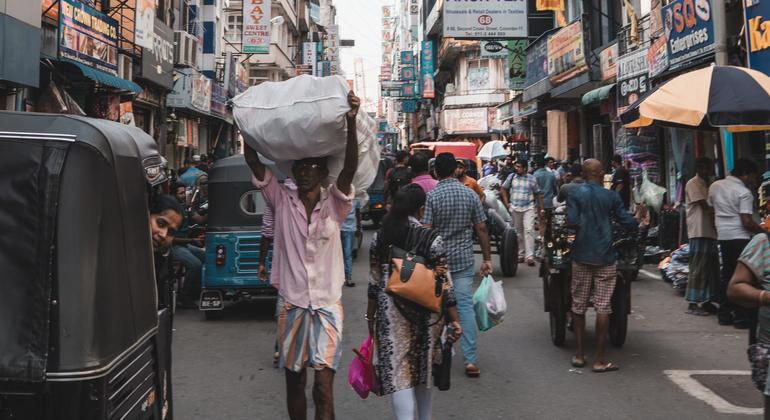Following this week’s crackdown on non-violent demonstrations in Sri Lanka, independent UN human rights experts urged the government on Friday to “ensure that all human rights be respected and protected” and guarantee the fundamental rights of peaceful assembly and expression.
A foreign exchange scarcity has stoked an economic crisis, coupled with rising inflation, shortages of fuel and essential goods, and prolonged power cuts.
It has aggravated an already dire situation over access to food and health and prompted thousands of Sri Lankans to take to the streets in protest – calling for political and economic reforms.
In turn, the Government imposed nationwide curfews from 2 to 4 April, arresting over 600 people who took to the streets.
On 2 April, the president declared a nationwide public state of emergency, which has since been revoked, empowering him to override most laws while authorities blocked access to several social media platforms, which were later restored.
“Peaceful protests and voices of legitimate dissent should not be met with unnecessary and excessive use of force by authorities,” the group of five UN experts said in a statement.
Condemnation
The compounded impact of foreign debt, corruption and the COVID-19 crisis, has crippled the country’s economy.
In an initially spontaneous and peaceful demonstration on 31 March, hundreds of people gathered in front of the president’s residence, demanding his resignation over his handling of the crisis.
Security forces responded by firing teargas and water cannon to disperse the crowd, which triggered clashes that left nearly 50 people injured, including several journalists, and further arrests.
“These measures seem aimed at discouraging or preventing peaceful protests in the wake of the worsening economic crisis and the lack of access to fuel, electricity, medicines and essential food items,” the experts said.
“We condemn the excessive use of teargas and water cannon to disperse protesters, as well as the recent block of social media platforms,” they added, urging the government to allow students, human rights defenders and others to “protest in a peaceful manner…share their political views and express their discontent, both online and offline.”
Call for open dialogue
The experts called on the authorities to engage in constructive and open dialogue with the Sri Lankan people.
“Resorting to use of force against protesters will only jeopardize avenues to express discontent peacefully, risking instead an escalation of tensions,” they said.
“We urge the Sri Lankan Government to seek an open and genuine dialogue with peaceful demonstrators on political reforms and means to lessen the impact of the economic crisis.”

